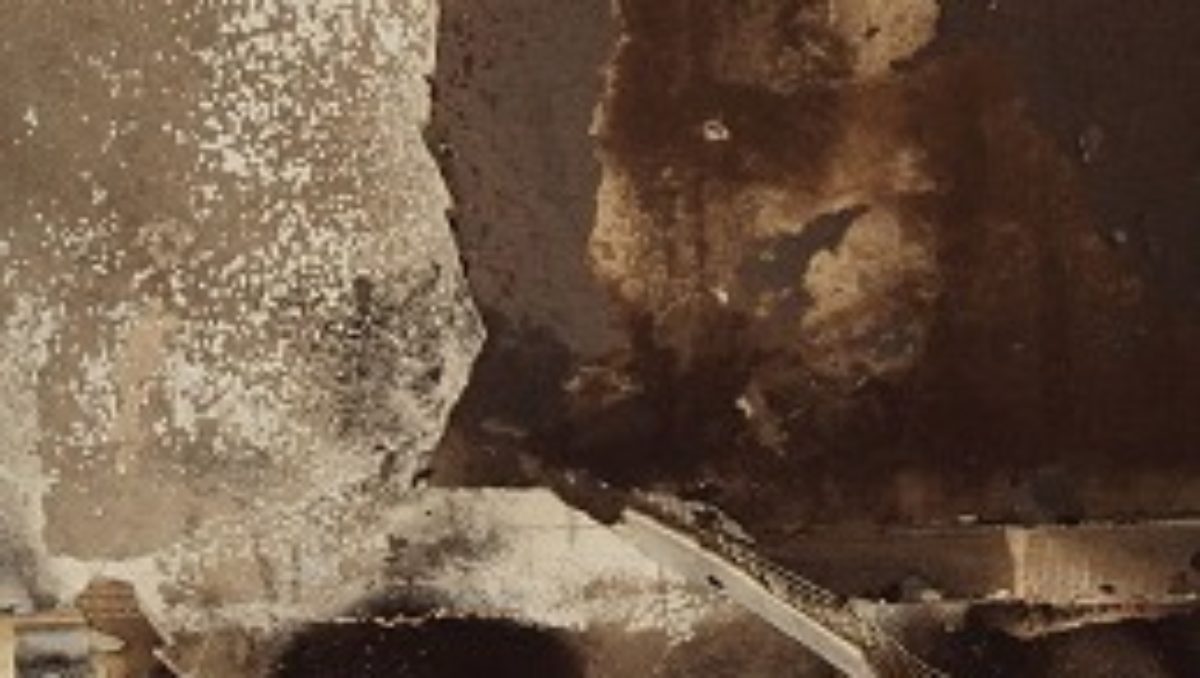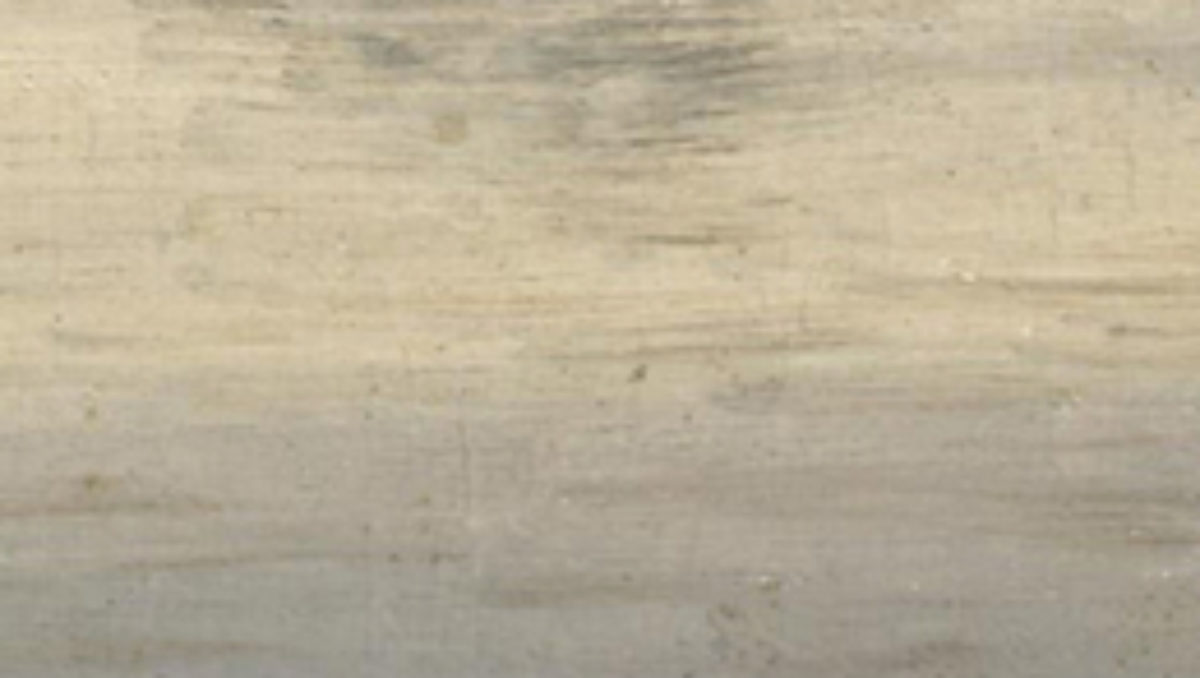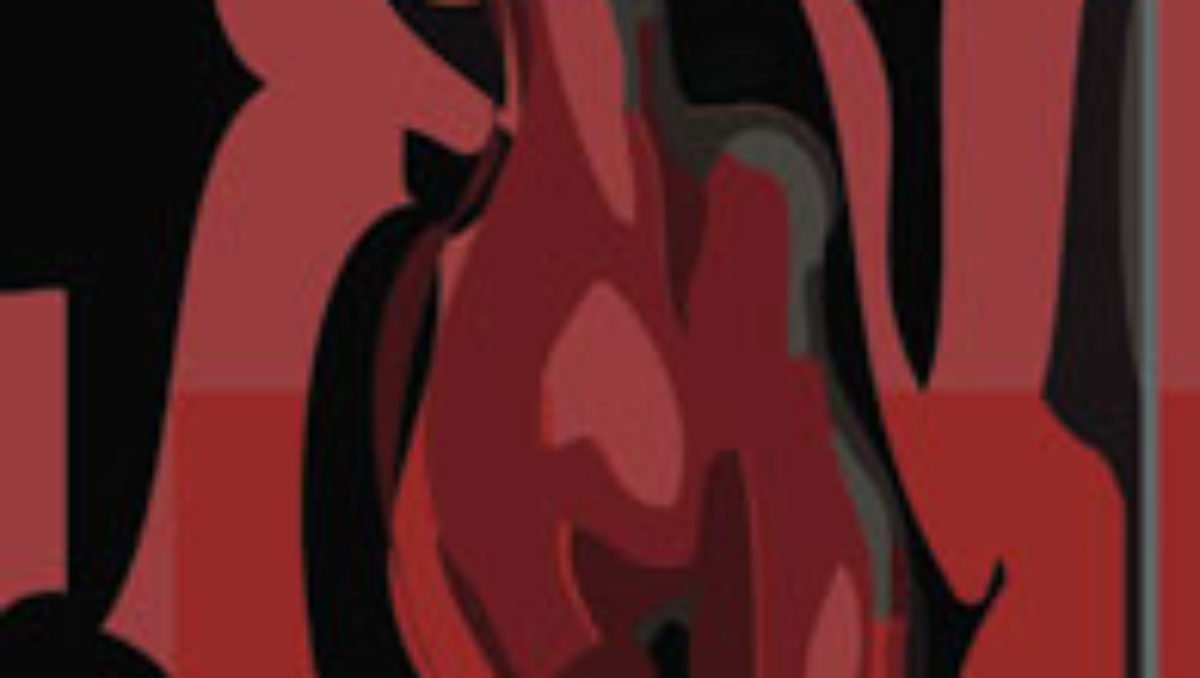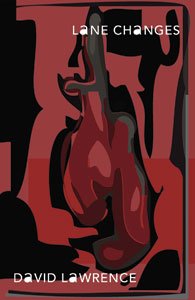TWO POEMS by Corey Van Landingham
VIEW POINT, SAN ANDREAS FAULT
From here, I see the up-thrust of collision,
how the Indio Hills have changed
through time. In a year, the sign says,
we will be standing two inches to the left
of where we are now. I have wasted
the winter on a man who will never
love me. Five hundred miles from here,
my apartment stands on top of this same
fault, just hidden. Nights I can’t sleep,
imagining the forces beneath me
creating a world I’ll never see. In the one
I can, the park closes at sunset.
The light is handsome, but I can’t give it
to anyone. The flowers start shutting down.
Where the valley rises, I can believe
in a future that does not hold us close.
Intersecting, the plates broke through
the earth’s crust until time was visible.
I want us to matter like ephemera:
old stock certificates, the postcards we buy
in the gift store. Driving home, we pass
the air force base, which of course
we can’t see. It’s the army. It’s a secret.
From the overlook I could see
into Mexico. Everyone else leaving
each other in their different languages.
A BAD DATE
The pleasure boats cut across the lake we can see
from the hotel restaurant’s floor-to-ceiling windows.
“I’m a sucker for a view,” I say, which, he tells me,
dignifies imperialism. What with Rome, and all.
We’re meeting to see if I will let him, tonight,
tie me to not-his-bed, to, with the instruments
he will deem necessary, knock against me while
his wife watches. I’m trying to forget another
man, so I repeat what I have heard on the radio:
to assuage traffic jams, engineers are studying
ants. Sans egos, they get where they need to go.
No flash. No honking. No aggressive driving.
Outside is only an inch of glass away. I sip my wine.
The fog bank has been erasing the hills
for a week, and in the mornings I climb the stairs
to my apartment’s balcony, where what is visible
is mine, and I would kill for it, the right-out-there.
Issue 7 Contents NEXT: When I Died by Fire by Scott Beal
WHEN I DIED BY FIRE by Scott Beal
my children knew I was the kind of fool who could drop a spark on my coat and wear it burning into the house, fold it over a chair and go on reading as smoke filled the apartment they knew then there was a reason I carried out recycling every afternoon they figured it was me who started the dumpster fire that time the trucks came though face it they must have smelled the smoke on my hands each night I tucked the sheets around their necks and now it was not just me who had burned but the building they slept in half the time half their drawings and laundry and the two chests their grandmother painted now they would live in only one house remember when that was all they wanted
Issue 7 Contents NEXT: Two Poems by Airea D. Matthews
LINE DRAWINGS by Weston Cutter
dear salt dear water scribbling difference between where I can dryly stand+not dear sea dear shell dear Florida from your panhandle I'm staring past seagulls flit +scurrying across sand white as my unsunned torso at an oil rig miles offshore which must even now be barbing into deep durk+mank to extract the treasure I'll later pump a refined version of into minivan's rear flank so we can trade this sucrostic malleability for the cold bones of home dear edge dear border dear horizon which just lays there flat as a that's that voice when what's done's been done, when there is as the phrase has it no going back up the road a thousand miles snow drifts where I'm from on hurt+merciful alike as it must, like Christ or a bad mechanic true cold can make no distinction regarding whom it bestows its shivery gifts upon dear south dear December I'm standing here because I believe the ocean keeps saying stand there then like any of us changes its mind, the way the waves gurgle playing the game of life which is called get everything then retreat dear boundary dear almost dear exact location where self ends+beach begins I came here to witness quietly shifting things: the moment one year breathes out + the next in, to listen to an I do transform Ellen's uncle+his love into husband+wife but my daughter kept shouting so we went outdoors where she again attempted to put the universe into her mouth dear littered plastic cup dear cigarette butt dear fallen palm leaves I watched the you may now kiss the moment from beyond the church's window as Jo said da and da and da pointing first at sky then trees then the cars passing the small white chapel +finally da pointing at herself, and then me, all of it da and how can I not hope she's right hope she hope me hope we never forget how the thin distinguishments of living are temporary mercies setting us free within flesh to believe beyond flesh dear wet envelope of ocean from which the moon slides nightly like the lovest letter dear moment bread becomes body there must be room within each infinity for all of us seeking the phonebooth in which our true selves stand waiting to answer whatever call finally comes.
Issue 7 Contents NEXT: Four Poems by Christopher Kempf
ORIGIN OF GLASS by Marcelo Hernandez Castillo
it is winter again as we feel our way through
a bed of glass in the river
we’ve been here before
everything’s the same
still the morning
still the pieces of glass
we pile in the image of a child and praise
in truth we can’t make anything happen between us
winter began inside you
no one knew
but I knew
*
I want to believe this will end
with the child coiled around your finger
with thousands watching and throwing roses at us
with lights and glitter in our hair
but we both know how it ends
we practice until we don’t need to tell our bodies how to do it
the child with her glass head—
her lips curled in my palm trying to say her name for her
will you hold her to the light
will you breathe a little pink into her
your hands on her throat looking for the song at the other end
not everything is a bright flute made of bone
*
we tried shaking her out of us like a bee down our shirts
but what if the bee had been a wasp
what if it died not because it stung
but because it grew tired of stinging
milk eyed small lunged prophet in the mud
you wash the sand out of your hair
where the mushrooms outnumber the stars
we sit on the bank in the sun
and quietly roll clay between our legs
and its hardening is a form of meditation
winter begins with her hands detached from the branches
you knew
you always knew
Issue 7 Contents NEXT: Water and Island by Jennifer Sperry Steinorth
TWO POEMS by Joy Ladin
EARLY MORNING FLIGHT
Half-empty plane, hot black coffee – it takes so many people
to keep my body soaring.
I must be important, or at least not dead,
and my not being dead must matter, or it wouldn’t be so sunny,
and if it’s sunny because I’m not dead
I must be the fulcrum, the measure of existence,
the line God draws
between meaning and meaninglessness
in sand composed of outgrown shells and diatoms,
animal and vegetable
ground into mineral glitter
by the pestle of existence.
I’m not ground yet, so I must be happy,
smiling for the camera
eternity, focused on me, must be.
I must be happy, falling asleep,
sinking into the clouds below my seat, soothed by engines’
rumbling stutter, the click-click heartbeat
of eternity’s shutter.
SMART WAYS TO DIE
That was a short list, wasn’t it?
An old man fingers a double fugue
alone on a famous stage.
There’s no smart way to die
during a Bach partita’s
helices of being and becoming
twinning, twining and untwining
chromatic, arpeggiated longing.
No genders, no time,
no way to die, smart or otherwise,
even though we practice death’s scales
day and night,
confounding individuation with despair, avoiding recognition
that the only part of us that lives forever
is the otherness we anticipate and echo,
a fugue that began before we began
and sings without a moment’s interruption
when our seats are emptied, our despairs compressed
into obituary and epitaph, our bones broken down
into nutrients absorbed by grass
nibbled by rabbits struck by hawks
and assimilated, briefly, into their soaring organs.
The smart way to die is to recognize
the stage is bare, the piano wheeled away,
the old man probably has a tough time peeing,
lets flattery go to his head,
foolish as the rest of us
when the universe serenading itself through him
lets his fingers become fingers again,
the universe too smart to die without rising,
twinning, twining and untwining
old men, vibrating strings, creaking seats and silence.
Issue 6 Contents NEXT: Two Poems by Lee Sharkey
LIGHT INSTALLATION AT THE HILTON by Iva Ticic
there are galaxies
above what used to be the soft spots
at the top of our heads
we elongate our necks
at an angle
trying to take in
all that neon-filled fullness
of the light-splattered cosmos
it scares me — that I don’t know
what you’re searching for
me, the same old — a flickering
of some sort, a disjointed piece of wire
just as I used to compete
with my father, pointing out night planes
in place of dead stars
Issue 6 Contents NEXT: Breath Memory [Breath Alphabet]
by Cory Hutchinson-Reuss
TWO POEMS by Rachel Eliza Griffiths
DEAR AMERICA
I pick you up
& you are a child made of longing
clasped to my neck. Iridescent,
lovely, your inestimable tantrums,
I carry you back & forth
from the underworlds
where your giggles echo,
grow into howls.
Your alphabet wraps itself
like a tourniquet
around my tongue.
Speak now, the static says.
A half-dressed woman named Truth
tells me she is a radio.
I’m going to ignore happiness
& victory.
I’m going to undo myself
with music.
I pick you up
& the naked trees lean
into the ocean where you arrived,
shaking chains & freedom
from your head.
No metaphor would pull you
out of your cage.
Light keens for the dead.
& I’m troubled
by my own blind touch.
Did the ocean release
my neck? Did the opal waves
blow our cries to shore?
You don’t feel anything
in the middle of the night.
ANOTHER WOMAN’S COAT
for J.H.
Alone with snowfall & pockets
of silence beneath shining streetlamps,
I pull her coat closer, finding spaces
in its arms. These seams do not belong
to me. And I won’t know this yet –
slipping down snowy Remsen. I stop
on the promenade, I’m solitary again
& stare at the city edging
the East River. Air blowing stings,
stinging, I pull the hood down,
burrow inside her wordless
flesh. Alive from dancing
with friends, & the music
of that. Pulled over me
like an eyelid of glitter.
As much as Manhattan
glares, can its insect
windows make me out
here on the other side?
Gatsby’s green heart
of a wish. Or whatever
was above me
that looked at my mouth
& said, Yes, it’s enough, isn’t it?
Blinking, immeasurable
in snow that needles
like fire, I’ll walk,
a Siamese with ten shadows,
amongst dense brownstones.
Heart, what telescope do you inscribe?
Snow light growing the shadows
of sycamores & fire hydrants
into giants. The bare pine seller
stands. The streetlights change
for nothing. When I get to my door
I’ll reach for a key
that opens & returns me
to myself like a rune. Then I see
I’m wearing a coat
that isn’t mine. Her syllables
& smiles & the wit of another
woman’s neck lingering
in the lining. Sweetness
& irony & how you couldn’t
tell, in the dark, you could wear
something so intimate
& otherwise? Hearing her
hands & breasts & ribs
murmur inside of the down.
The feathers you now
warm with your own
body. Inseparable
as the music we shared
as we danced,
the holiday like flecks
of tinsel caught under
the god’s tongue. Julie,
I hope you’ll forgive
me for wanting to
verse your instrument,
& how, when Brooklyn
wasn’t looking, I made
angels against the air,
our skin, like words slipped back
beyond midnight & knowing
I have no other way
to bear my life, you
laugh at the café
where we meet
& tell me
when we give
our coats back
with wonder
for ourselves
that the dance
was so lovely
your legs hurt
in the morning.
Issue 6 Contents NEXT: Stack of Brightness by Rosalynde Vas Dias
BREATH MEMORY [BREATH ALPHABET] by Cory Hutchinson-Reuss
Zero degrees again. Midwest winters confuse loving with not leaving.
Yes we are made of drifts. Yes we are made of degrees on a map of discontent.
Breath of blood history, breath of aromatic bitters]
Example: I left my home full of salt and chrome and church manners. Moved away,
where I willed the memory of glaciers to silt me downriver again.
Dogwood, devil’s food, breath of divinity with almonds]
Vacant hills of snow: fugue season, no permits given.
Under each fallow mound I idle and thaw. GOODY’S BODY SHOP: PAINT REPAIRS PARTS
Folly, fork in the road, breath of sod]
They swim up in the sun, the sleepers, the root-fish,
sow rain into beds, they evaporate.
Hickory breath, hymnals, breath of leather, breath of sorghum]
Rivulet the dark with what do I remember: stop for an ache,
quarry-side: peer into its deep gunmetal eye: hello, loaded chamber.
Jam breath, cherries jubilee, gin breath of bathhouse row]
Pews lined end-to-end with legs like piano keys break into rafts
or into song. They glide and steam. PINE BLUFF ARSENAL EXIT 2 MILES CLOSED
Lotus breath, bobcat laugh, breath of lone oak]
No one told me not to: I yelled down backwaters that echo.
Mud face named, catfish alien, puppy-hushed. What did swim up.
Nickel, new roads, breath of soffit and tornado]
Lampshade sun: loaded barrel chest: mountains
knuckle the sky. The river cracked slate and chalk.
Phantom breath and pantomime, breath of empty frames]
Jesus of Billboards and Hearts’ Doors. KING BISCUIT TIME. My
itinerant bridge of blue mud and mosquitoes, interstate of homeless lights.
Ridgeback and breath of rice fields, breath of accents]
Hunger-nested, I swarm, I hive, in fault lines, in
golden meat, on the backs of wild boar, in the rough of diamonds.
Terrace breath, breath of taffy, tree swing breath of currents]
Ferry across the lake to the island with the cliffs. Let turkey vultures
eat the gift of my violence.
Velvet breath, breath of grease, breath of fire]
Darlin’, what’ll ya have? Fingers licked clean.
Can you pay for what you’ve taken? Not even close.
Xiphoid breath of bone tongue, breath of shoal]
By what shore my hands have emptied me. No pennies
and no receipts. At what tables I swam and fed.
Zodiac breath, zenith, breath of weather, teeth, and grammar]
Issue 6 Contents NEXT: The Landlord by Peace Adzo Medie
TREES by David Lawrence
The log that fell into the river went for a long swim into a hidden country where logs were the dominant culture and the trees wept as they saw their barky cousins floating home.
My wife loves trees
And cries
When a branch breaks on 72nd Street.
I don’t care whether trees come and go like soldiers in formation and lie down like one of the wounded in a futile war.
My wife likes plants too.
She puts an orchid on the windowsill.
I bought it for her for Mother’s Day.
She is not my mother.
I want her to be happy.
When we walk down Madison Avenue to the St. Regis Hotel for our Sunday tea sandwiches, I will pretend that I am a tree and hold her with my leafy hand like we are nature’s thrill.
Issue 6 Contents NEXT: Light Installation at the Hilton by Iva Ticic
|
Get David Lawrence’ Lane Changes at Four Way Books |
BIRTHDAY by Lauren Hilger
On a stone wall, no one around I stole my mom’s mink stole
I stare the doe in the face self-reflection in a lap pool
March, my month, cold I want this to be the last awful
cake white on white of winter
my mother sends daffodils in an open courtyard
that are chives unblooming I wait for Jane Kenyon—
thunder over the meadow we hide how much we love
will you allow yourself this so as to appear merely happy
Old Style Russian, March 19, 1805 I am like a railroad tycoon
Lise dies, Prince Nikolay is born with a stack in my hands
How you felt in 6 PM sun— my hood
somewhere makes the view a circle
how remarkable the green isn’t lurid it’s just
if she and her dog were near mossy
would I ever, if not now, be ready for her visit
Issue 6 Contents NEXT: Two Poems by Rachel Eliza Griffiths
Reprise by Kathleen Hellen
Reflex. Automatic. My son with that look when I slapped him.
Something in the genes, the violence of pathways reenacting:
biologies of caterwaul of bottle-fights of fists into the wall.
I saw Mother with her twin colossals jug-drunk dancing jigs. Her laugh,
big or bigger, her three sheets to the wind—My Father’s hands like blackened mitts.
I wanted none of it—that phonograph. The crankpin, that turntable
that played the groove over and over. I put the toys away. A ball,
a holstered gun. Things to tell me I was having fun.
Issue 6 Contents NEXT: Birthday by Lauren Hilger
PERSISTENT DESIGN by Nate Pritts
Wasps keep circling
the shutters, long stalks
of grass dangling
from thin back legs,
and when they crawl between the slats
into the small dark,
they bring their greeny materials
with them.
There is nothing here
you can’t leave. Despite
all your kind diligence,
the actual time, the slow
and loving duration of our attentions,
there is nothing in this world
we can’t abandon.
We are human.
The movements of wasps
are terrible, hovering
sometimes, sometimes
jabbing through the air.
I watch them at their task—
how they build
and build again
calmly.
Issue 6 Contents NEXT: Two Poems by Joy Ladin





